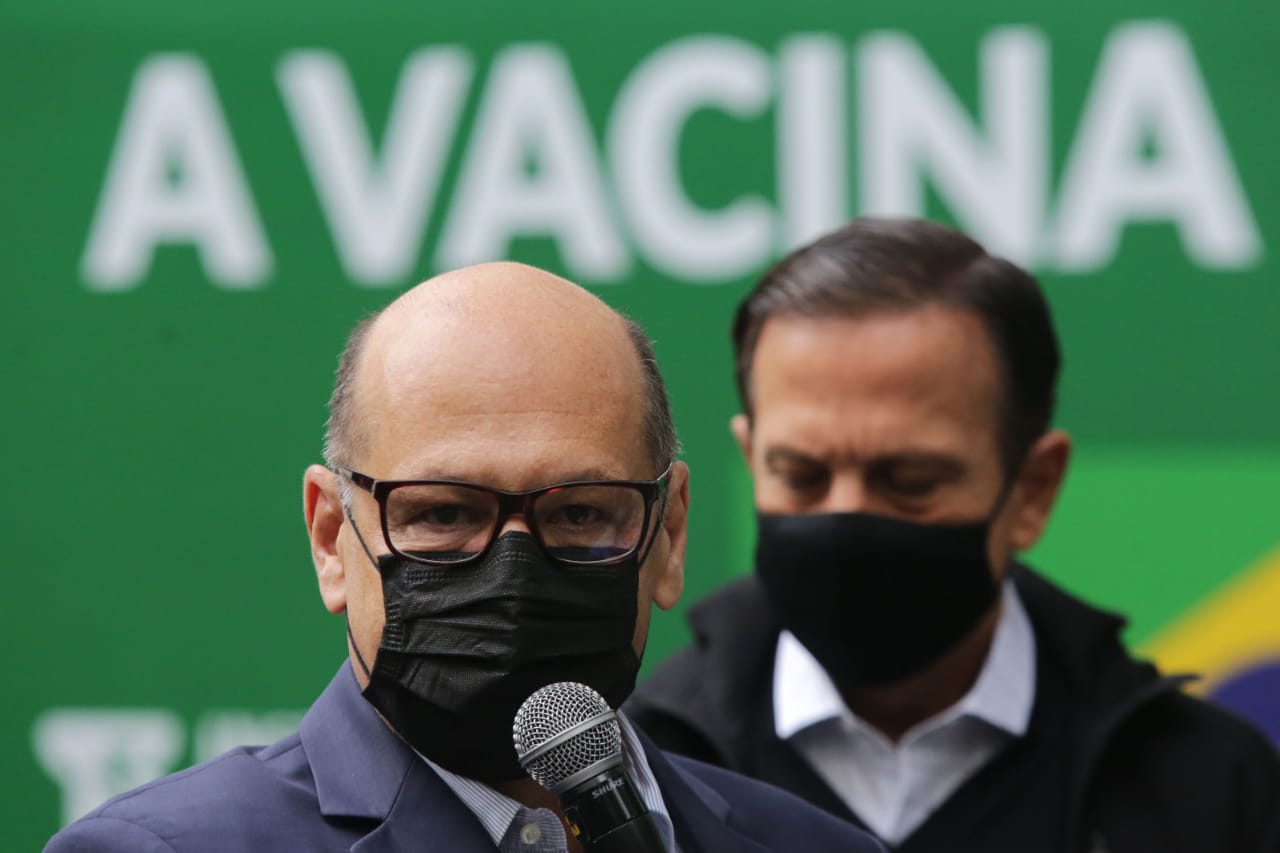RIO DE JANEIRO, BRAZIL – The government of São Paulo and the Butantan Institute delivered a new batch of 1 million Coronavac doses to the Ministry of Health on Wednesday morning, May 12.

The São Paulo state government has now delivered 46.112 million doses, thereby complying with its first agreement with the federal government. The doses will be sent to the National Immunization Program (PNI), to be distributed proportionally to the states.
This delivery is the second of a total of three that the Butantan is expected to make to the health ministry this week: on Monday, May 10, 2 million doses were distributed and next Friday, May 14, another 1.1 million doses will be distributed.
On Monday, May 10, Dimas Covas, the Butantan Institute director, had advised that, as of this week, there could be no more raw materials needed to produce the Coronavac in the country, and the June delivery schedule might also be jeopardized.
São Paulo governor João Doria (PSDB), attended the delivery alongside state health secretary Jean Gorinchteyn, the coordinator of the São Paulo State Immunization Program Regiane de Paula, the Butantan Foundation superintendent Reinaldo Noburu Sato and the president of the Butantan Foundation Rui Cury in an interview with journalists on Wednesday morning.
The São Paulo government is awaiting Chinese government authorization for the release of a new batch of API (active pharmaceutical ingredient). China is keeping a batch of 10,000 liters separated and ready for shipment. In addition to this batch, which has not yet been authorized for shipment, the sending of new batches is still unclear.
This Wednesday, the Butantan held a meeting with Chinese authorities seeking a position to release the shipment of a batch of API, whose arrival, if authorized, should happen on May 18.
However, there is no estimate for this batch to arrive in the country and even if it will be divided into different batches. According to Doria, the government may decide to release 10,000 liters or less.
“The Sinovac laboratory has 10,000 liters ready, refrigerated and separated to produce the Coronavac and may release 4,000, 6,000 or all 10,000 liters, but we have a diplomatic obstacle, it is necessary to make this clear,” he said.
The release is on hold after statements from the federal government, and particularly from president Jair Bolsonaro, against the Asian country.
Doria said that until this diplomatic obstacle is overcome, China will not release these raw materials for the production of the vaccine, the main one used in the country against Covid-19 so far.
The governor reiterated that there are no issues regarding the contract with Sinovac, but the problem is between the Chinese authorities and the Brazilian government.
“It is a matter of diplomacy and who does it is the Brazilian government’s Foreign Ministry. The raw materials were not authorized to be shipped to Brazil, yet Sinovac continues to send raw materials to Indonesia, Turkey, the Philippines, Mexico, and Chile, but not to Brazil,” he said.
One day after the Ministry of Health suspended the use of the Oxford/AstraZeneca vaccine after the occurrence of a death, still under investigation, of a pregnant woman who had been administered the vaccine, the state government decided to suspend the vaccination of this group in the state, a decision that has been maintained in São Paulo even after the Ministry of Health recommended the use of the Pfizer vaccine and Coronavac in pregnant women with comorbidities.
According to Regiane de Paula, the decision to maintain the suspension is due to the lack of clear information about what happened and also due to the shortage of other vaccines.
“At this moment the state of São Paulo maintains the non-vaccination of pregnant women because we need the Ministry of Health to guide us, we need a technical note saying which vaccine to use. We can use the Pfizer vaccine in São Paulo, but the other cities need the Butantan vaccine,” she said.
With the shortage of Coronavac doses due to lack of raw material to produce it, the Ministry of Health’s guidance to use it on pregnant women is compromised. “Yesterday, even before any note from the health ministry we decided not to vaccinate any pregnant or post-partum women with comorbidities, and we will remain like this until the Ministry advises us on how to proceed and not through a press conference,” she said.
De Paula also said that there was no notification of any serious adverse post-vaccine event in pregnant women in the state. There have been 71 reports of pregnant women inadvertently getting the Covid-19 vaccine rather than the flu vaccine, of which 7 had post-vaccine adverse effects, and another 35 reports of post-vaccine adverse events in pregnant women in other groups, such as health care, security, and education professionals. All events were mild or moderate, such as body pain and discomfort.

